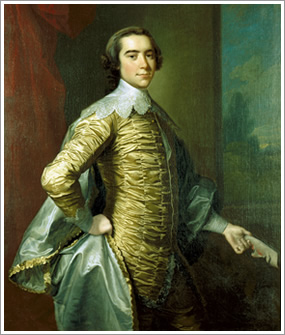Slavery existed in the British colonies of North America long before the Revolutionary War and the events that created the United States of America. Most Americans are aware that our founding fathers owned slaves. Historians try to be fair and judge historical figures based on the culture of their time and have given many reasons why our revolutionary icons were unable to free their slaves even if they had so desired.
I recently read about a man in Virginia who freed all of his slaves in the late eighteenth century. He released more slaves than anyone else ever would, more than were owned by Washington and Jefferson combined.
Robert Carter III (1728 – 1804), a slave owner in Virginia, was a contemporary of our founding fathers, living through the same times of rapid change and revolutionary ideas. He was given his first slave by his grandfather when he was three months old. Both his grandfather and his father died in 1732, and when Carter reached his majority at age 21 he inherited 100 slaves and 65,000 acres.

Robert Carter III of Nomini Hall, painted by Thomas Hudson (1701–1779). Photo from the Virginia Historical Society via Wikimedia Commons
In 1754 Carter married Frances Tasker, whose father had been the governor of Maryland. They had 17 children, 12 of whom reached adulthood. He also received more slaves from his father-in-law. Carter was less cruel to his slaves than many owners and evidence suggests he was crueler to his children than his slaves. Well, except for the whole freedom thing.
Carter was also a spiritual seeker, and he studied various religions to find where he felt he belonged. He found a temporary spiritual home and was baptized into the Baptist Church when he was about 50 years old. Between the teachings of the church and the revolutionary ideas about men being equal, Carter decided to do something about an institution, slavery, that he believed was immoral.
On September 5, 1791 Carter filed a Deed of Gift with the District Court, a plan that would emancipate every single one of his slaves. For many, the main concern with emancipation was what to do with the slaves once they were free. They did not want emancipation without relocation, but didn’t know where they should be relocated. Carter’s initial plan was for these manumissions to be done gradually, freeing 15 slaves every January 1. Carter knew that freeing his slaves could cause problems with other slave owners and wanted to minimize the effects that concerned them.

Long-time home of Robert Carter III, Nomoni Hall, Westmoreland County, VA. Photo via Wikimedia Commons
His Deed of Gift listed 452 slaves, but in the end, the final number emancipated is difficult to nail down. Because the slaves were freed gradually, over a 35 year period, more children were born into slavery whose names were not included on the original list. The emancipation of Carter’s slaves continued after his death in 1804 through his surrogates, which definitely did not include his children and in-laws, who were always against Carter’s plan and even tried legal actions before and after Carter’s death, to stop the manumissions.
Ultimately Carter freed his slaves because he believed that human slavery was immoral. That was not the dominant view at the time, but he certainly wasn’t the only one who believed that. There were abolitionists aplenty both in Britain and in the United States. There were also many owners who emancipated individual slaves in their wills. Even George Washington called for his slaves to be freed after his wife’s death. Fearing that the slaves may try to rush her death, Martha freed them about a year after George died.
So feel free to give more thought to the idea that our founding fathers were somehow unable to emancipate their slaves. You could say that Carter, since he didn’t hold a high government position, had nothing to lose by doing the right thing. But since he left his home in Virginia because of the backlash from family and neighbors to his Deed of Gift, he most certainly did have something to lose.
*Check out this site that is “chronicling the descendants of the 500+ slaves that were freed by Robert Carter III from his Nomini Hall estate”.
*Check out the book “The First Emancipator: The Forgotten Story of Robert Carter, the Founding Father Who Freed His Slaves” by Andrew Levy. Amazon
